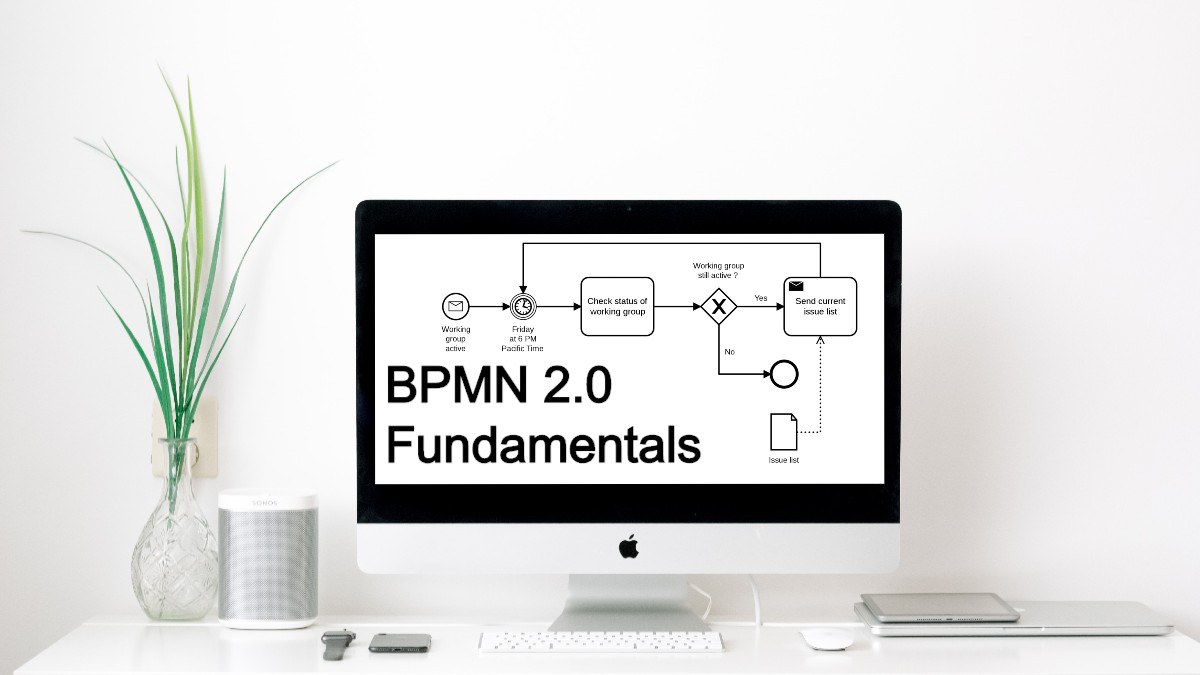BPMN Signal Event

The BPMN Signal Event article provides a detailed explanation of the signal event BPMN element, including the definition, notation, rules, guidelines and examples.
The BPMN Signal Event article delves deep into the intricacies and applications of the signal event element as outlined in the BPMN 2.0 specification. The definition, notation, and rules sections offer a concise summary of the BPMN 2.0 Specification pertaining to the signal event element. Meanwhile, the guidelines section presents a curated collection of best practices specific to the signal event, showcasing its proper and effective utilisation in process modelling.
BPMN Definition
The Signal Event differs from an Error Event in that the Signal defines a more general, non-error condition for interrupting Activities (such as the successful completion of another Activity) as well as having a larger scope than Error Events. ~ BPMN Specification
BPMN Notation
The BPMN specification defines the different types of Signal Event elements using the following description and notation:
| Element | Description | Notation |
|---|---|---|
| Signal Start Event | A Signal arrives from a Participant and triggers the start of the Process. | |
| Signal Event Sub-Process Event (Interrupting) | A Signal Event can also initiate an inline Event Sub-Process. A Signal Event Sub-Process that interrupts its containing Process is known as a Signal Event Sub-Process Event (Interrupting). | |
| Signal Event Sub-process Event (Non-Interrupting) | A Signal Event can also initiate an inline Event Sub-Process. A Signal Event Sub-Process that does not interrupt its containing Process is known as a Signal Event Sub-Process Event (Non-Interrupting). | |
| Signal Intermediate Catch Event | A Signal Intermediate Catch Event can be used to receive a Signal. | |
| Signal Boundary Event (Interrupting) | A boundary event is an event that is attached to the boundary of an activity. A Signal arrives from a participant and triggers the Event. A Signal Boundary Event (Interrupting) is attached to an activity and will interrupt the activity. | |
| Signal Boundary Event (Non-Interrupting) | A boundary event is an event that is attached to the boundary of an activity. A Signal arrives from a participant and triggers the Event. A Signal Boundary Event (Non-Interrupting) is attached to an activity and will not interrupt the activity. | |
| Signal Intermediate Throw Event | A Signal Intermediate Throw Event can be used to send a Signal. | |
| Signal End Event | A Signal End Event can be used to send a Signal once the token reach the end event and then terminate the process. |
BPMN Event Types: None Events
BPMN Event Types
BPMN events represent various types of occurrences that affect the flow of a process, and they can be categorized based on their position and behavior in the process.
- Start Event: The Start Event indicates where a particular Process will start.
- Intermediate Event: The Intermediate Event indicates where something happens (an Event) somewhere between the start and end of a Process.
- End Event: The End Event indicates where a Process will end.
- Catching Events: Events that catch a trigger. All Start Events and some Intermediate Events are catching Events.
- Throwing Events: Events that throw a Result. All End Events and some Intermediate Events are throwing Events that MAY eventually be caught by another Event.
- Boundary Event: An Intermediate Event that is attached to the boundary of an Activity.
The following table illustrates how the different types of Signal Events are grouped as per the BPMN Event types:
| Catching Events | Throwing Events | |||||||
| Start Event | Intermediate Event | End Event | ||||||
| Standard | Event Sub-Process Interrupting | Event Sub-Process Non-Interrupting | Catching | Boundary Interrupting | Boundary Non- Interrupting | Throwing | Standard | |
| Signal Event | ||||||||
BPMN Notation: Signal Event
Finally
This article provided a detailed explanation of the BPMN Signal Event element. Follow me on any of the different social media platforms, and feel free to leave comments.
Reference
- Business Process Model and Notation Specification Version 2.0.2. (2014, January). https://www.omg.org/spec/BPMN/2.0.2/
